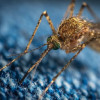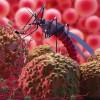
 IJCP Editorial Team
IJCP Editorial Team
Prediabetes: All You Need To Know
Prediabetes is a serious health condition where the blood sugar levels are higher than usual but not elevated enough to be considered type 2 diabetes (T2D).
The pancreas is responsible for producing insulin, a hormone that allows blood sugar to enter cells and be converted into energy. In people with prediabetes, the cells in the body are less responsive to insulin, requiring the pancreas to produce larger amounts. However, if the pancreas is unable to keep up with this increased demand, blood glucose levels will rise, leading to prediabetes and, eventually, T2D.
In most cases, individuals with prediabetes are not aware of the condition until more severe health issues such as type 2 diabetes manifest.
Sign and Symptoms of Prediabetes
One probable sign of prediabetes is darkened skin on certain body parts, like the neck, armpits, and groin, called acanthosis nigricans. There may also be skin tags or tiny skin growths and eye changes causing diabetes-related retinopathy.
A few classic signs and symptoms can suggest the transit from prediabetes to type 2 diabetes, like:
• Increased thirst and hunger
• Frequent urination
• Fatigue
• Sensation loss/tingling in the feet or hands
• Frequent infections
• Slow-healing sores
• Unintended weight loss
Risk Factors for Prediabetes
A few known conditions can increase the risk of prediabetes, like High blood pressure, Low levels of high-density lipoprotein (HDL) cholesterol or the "good" cholesterol, and High levels of triglycerides. Obesity, a sedentary lifestyle, smoking, and metabolic syndrome can also contribute to prediabetes.
Further, there are some other identified risk factors for prediabetes, which include:
• Age of 45 years or older
• Unhealthy diet
• Prevalence of type 2 diabetes among first-degree family members
• History of gestational diabetes (diabetes during pregnancy) or delivering a baby with more than 9 pounds of weight
• Polycystic ovary syndrome
• Certain medications, like steroids, certain antipsychotics, and some HIV medications.
• Hormonal disorders, like Cushing's syndrome and acromegaly.
• Sleep disorders, like sleep apnea.
Some races and ethnicity also have an elevated risk, like African Americans, Hispanic/Latino Americans, American Indians, Pacific Islanders, and some Asian Americans.
Disease Progression and Associated Complications
Individuals with prediabetes face the possibility of developing type 2 diabetes and its associated medical complications, such as high blood pressure, high cholesterol, and retinopathy, which can cause vision loss. Moreover, those with prediabetes can be at risk of developing further chronic health issues, including heart disease, stroke, kidney disease, nerve damage, fatty liver disease, and limb amputations. It is essential to be aware of the potential risks of prediabetes and to seek treatment as soon as possible to reduce the chance of further health problems.
Diagnosis and Testing for Prediabetes
For testing prediabetes, the healthcare provider will request the following blood tests-
• Fasting plasma glucose test- tests blood after eight hours of fasting or overnight fasting.
• A1C test- provides average blood glucose level over the past two to three months.
Your healthcare provider will declare the person with prediabetes if:
• The fasting plasma glucose test is 100 to 125 mg/dL (normal is <100; diabetes is 126 or higher).
• The A1c test is 5.7% to 6.4% mg/dL (normal is < 5.7%); diabetes is 6.5% or higher).
Management and Treatment of Prediabetes
Since prediabetes is reversible, lifestyle modifications are the best way to treat and manage the condition. Eating a nutritious diet and regular exercising can help prevent or delay Type 2 diabetes. Other lifestyle changes, such as reducing or managing stress, quitting smoking and limiting alcohol intake, treating sleep disorders, and managing associated disorders, like high cholesterol and high blood pressure, can increase the quality of life in the individual with prediabetes.
The doctor may also prescribe metformin, a diabetes medication that may help delay diabetes in people with prediabetes.
Lowering the risk factors for prediabetes can often get blood sugar levels back to healthy.
• In persons with prediabetes, losing a small amount of weight if overweight and getting regular physical activity can diminish the risk of developing T2D. A little weight loss represents around 5% to 7% of the body weight.
• Regular physical activity emphasizes getting at least 150 minutes/per week of brisk walking or similar activity.
Diabetes type 2 does not necessarily progress from prediabetes. The lifestyle changes that can help prevent type 2 diabetes in adults might also help bring children's blood sugar levels back to normal.
The bottom line
Prediabetes is a common condition that presents with higher-than-normal blood sugar levels. It may not show symptoms, but talking to the healthcare provider about getting regular blood tests, including an A1C test, is essential.
The good news is that prediabetes can be reversed by opting for a healthy lifestyle and following the health provider's advice.

IJCP Editorial Team
Comprising seasoned professionals and experts from the medical field, the IJCP editorial team is dedicated to delivering timely and accurate content and thriving to provide attention-grabbing information for the readers. What sets them apart are their diverse expertise, spanning academia, research, and clinical practice, and their dedication to upholding the highest standards of quality and integrity. With a wealth of experience and a commitment to excellence, the IJCP editorial team strives to provide valuable perspectives, the latest trends, and in-depth analyses across various medical domains, all in a way that keeps you interested and engaged.














Please login to comment on this article